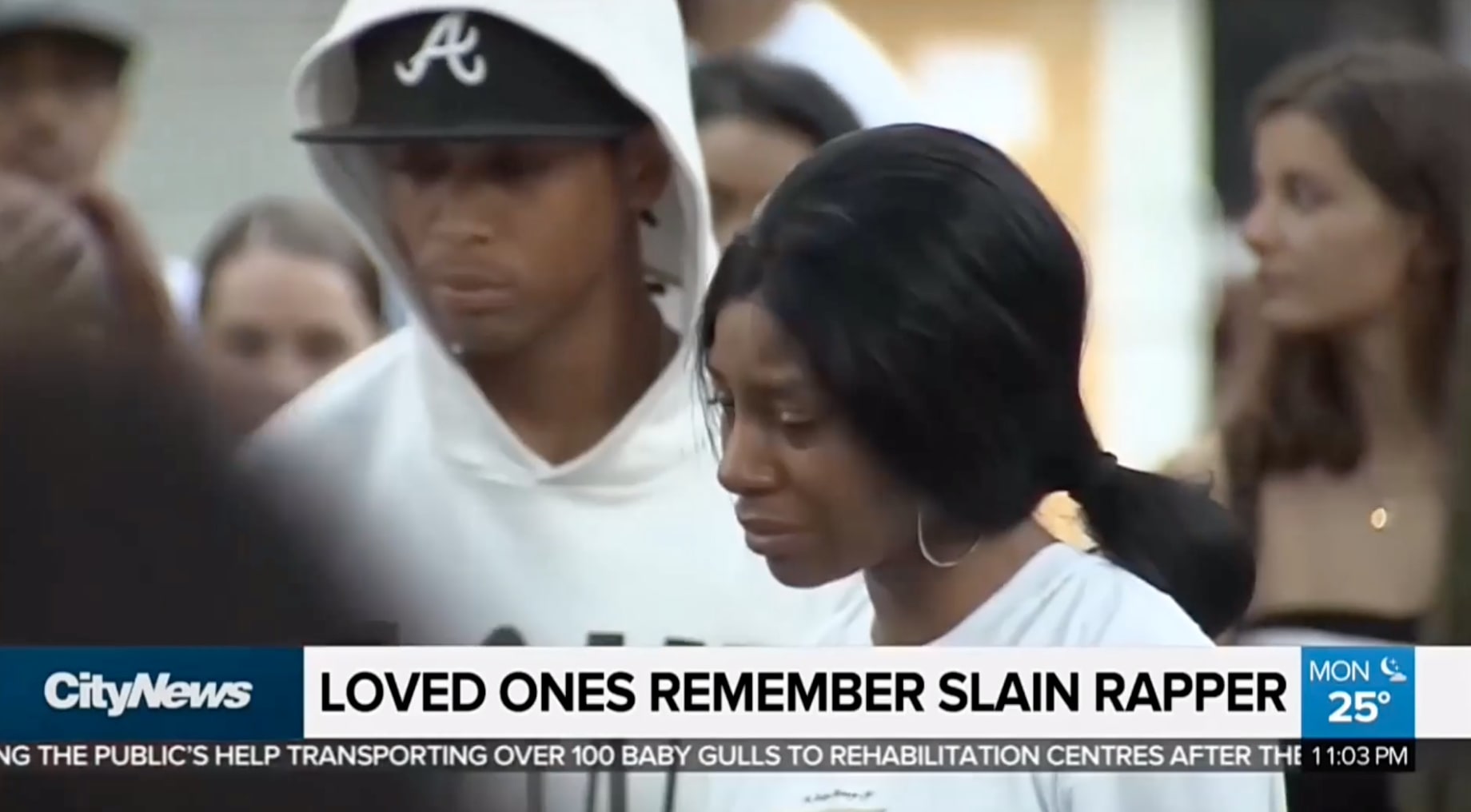
How would you describe life in Toronto from 2010 to 2020? Artist and director Matthew Progress’ video collage short film TXN (pronounced "ten"), does just that. In under 20 minutes, it summarizes a decade of the Black experience in Toronto. The film is an honest look into the 2010s, where the city saw the ascension of homegrown stars and locally-led movements, while simultaneously experiencing an outpouring of violence, death, and discrimination.
Though the film was commissioned by Nia Centre for Black Futures Month, it is more pertinent than ever as the uprising against anti-Black racism continues to scale globally. But as we see in TXN, organizers and activists in Toronto have been taking action long before it drew headlines.
The narrative in TXN teeters between Toronto’s proudest and most painful moments; from haunting reels of shootings to the moment that the Raptors won their first NBA championship last year. And by looking back on the city’s most transcendent wins and most unsettling losses, we can navigate our current predicament with some much-needed context. Because in addition to responding to recent tragedies, the current uprising is also addressing the city’s ongoing history of anti-Blackness and the systems that uphold it. All of this matters and all of this should be taken into account.
“The way that he pulled all of those images and sounds and moments together makes you reflect on the consistent theme of violence being part of Black life,” says Nia Centre’s Executive Director Alica Hall. “There are people who are aware of that and are angry about that but Black people the world over have known that as a Black person, too often death is part of our story; violent death is part of our story.”

Right now, Hall says that “TXN has even more relevance because people are beginning to understand that it is part of the Black Canadian experience. Too often we look to America and associate that with the Black American experience. What the video shows is that that’s not true.”
We caught up (virtually) with Matthew Progress to hear more about TXN and to get his thoughts on Toronto’s past and present.
If someone woke up from a 10-year nap and the first thing that they watched was your film, what would you want them to take away from TXN?
I would want them to take away the fact that the years 2010 to 2020 in Toronto is a full and complete cocktail of events and emotions—major triumphs and major trauma. The most unique aspect is that we became more digitized and we started to live online a lot more. But as far as everything else that occurred, it’s the usual cocktail of a human decade. The uniqueness of this decade can be found in the film’s intro, which speaks to us moving our lives online.

When Nia Centre commissioned this piece, was the medium already determined? Did they specifically ask for a video essay?
They asked for a video essay. The definition of video essay was very up for interpretation, though. I’m a big fan of people like Arthur Jafa and Terence Nance, people that work in video assemblage. I had already been making a lot of work in that space, but I hadn’t really released much of it. So when they requested a video essay, I had an idea of what I wanted it to look like.
Complete this sentence: From 2010 to 2020, Black people in Toronto were ____
Alive.

Is Black survival the most radical thing that happened in this decade?
I would say the most radical thing that happened is the contrast of life and moments exhibited in the film. The boldness and fire of our activism coupled with the triumph of our major achievements and the deep sorrow of our trauma. All of those things happening at once is the biggest and boldest act.
How can we apply TXN to what is happening right now?
There are a lot of people in the world, mostly white people, but also POCs and other Black folks who are acting super brand new right now. They are coming through with pro-Black politics that are very new and aren’t taking into account the decades that many of us have spent thinking and writing and creating from this vantage point.
So I would say for the Black community, this current moment is an economy of white guilt. Platforms are opening up and money is being given and space is being given in a way that’s tokenistic, but can be claimed in a more sustainable manner. If you give me space now, I’m not relinquishing that space. If you’d like to screen my film now, you will be screening my film next year. If people want to give TXN more attention now, I’ll take it, but there are strings attached to that attention and I’m expecting it to be permanent.
You can support Nia Centre here.

